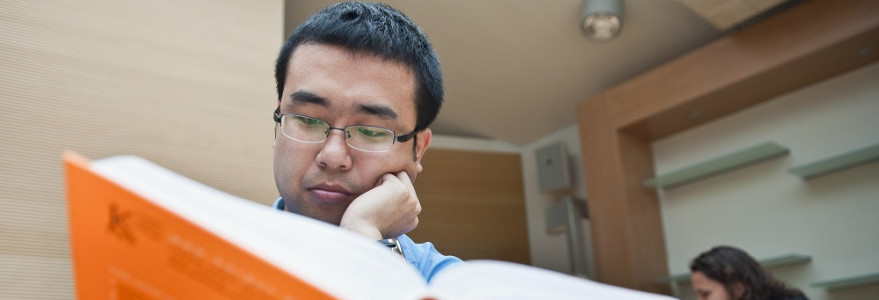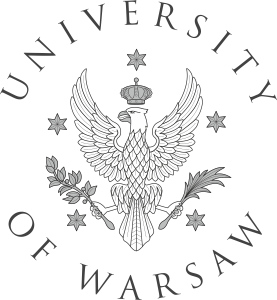Over 12 000 UW students with eID cards
19 marca 2021
More than 12 000 students of the University of Warsaw already use their eID cards (“mLegitymacja”). With the mobile version of the document, students can confirm their student status and benefit from statutory discounts.
“mLegitymacja” is a mobile version of a student card confirming the student status and entitling students to benefit from discounts. Student card service is carried out without the participation of the university administration. Students can order, extend and revoke their eID cards through the USOS Mobile app and USOSweb.
Its operation is possible thanks to the “mObywatel” application, after integrating the system with the mobile application USOS. Detailed information and installation instructions can be found on the USOS website, the USOS Mobile app and the mObywatel app.
Reinstall
To reinstall a student electronic ID card on a new device, go to “mLegitymacja” on the USOS website or to the USOS Mobile app and select “Revoke mLegitymacja”. This feature is also useful if the activation code was ordered some time ago and the “mObywatel” application indicates an error with the text: “mLegitymacja does not exist”.
There is no need to visit the university in person in order to activate, renew or revoke student electronic ID cards.
The mobile student ID card is the full-fledged equivalent of a plastic student card. However, having a traditional version of the document is still an obligation. Electronic ID cards have a complementary function.
The validity of electronic student ID cards has been extended in USOS from 31.01.2021 and 31.03.2021 to 30.06.2021.
Source: www.en.uw.edu.pl
Six lectures on multilingualism

In March and April, experts in the field of multilingualism will present multilingualism from the linguistic, psycholinguistic and educational perspectives. The online six-lecture series begins on 24th March.
In the series of six lectures, “Current trends in multilingualism research”, researchers will present linguistic, cognitive, affective and educational aspects of multilingualism. International experts will discuss the findings of empirical research on individual multilingualism. Specialists will explain the mechanisms which underlie the functioning of multilingual adults and children. Also, they will discuss individual differences in the acquisition of new languages, expressing emotions in foreign languages, multilingualism in education, as well as linguistic and cognitive development of multilingual children.
The lectures are organised by the University of Warsaw School for International Science, in collaboration with the International Association of Multilingualism under the Initiative of Excellence – Research University project (IDUB Action II 3.7 “Multilingualism”), coordinated by Prof. Agnieszka Otwinowska-Kasztelanic from the UW Faculty of Modern Languages.
Languages in everyday use
Multilingualism refers to the usage of several languages by the same person for varied purposes.
A multilingual person is defined neither through the prism of the order of the languages learned, nor the proficiency in those, but functionally, as the ability to use those languages on daily bases,” explains Prof. Agnieszka Otwinowska.
Multilingualism, defined in that way, is common in modern societies, including Poland, as many people develop multilingually due to international mobility, migration or schooling. On the one hand, multilingualism is an opportunity, and on the other, it is a challenge and responsibility, especially for teachers working with multilingual children and youth.
The programme of the lectures
All six lectures will begin at 3 p.m. on YouTube (the UW Live Stream profile). The meetings will be conducted in English.
- 24th March, Prof. Raphael Berthele (University of Fribourg, Institute of Multilingualism): Between monolingual bias and the celebration of diversity: Investigating individual differences in multilingual acquisition
- 31st March, Prof. Jean-Marc Dewaele (Birkbeck, University of London): Communicating emotions in a foreign language: the ultimate linguistic challenge
- 15th April, Prof. Jasone Cenoz (University of the Basque Country): Focus on multilingualism and translanguaging in education
- 21st April, Prof. Julia Festman (University College for Teacher Education Tyrol): Does it get any easier when we learn and process multiple languages?
- 22nd April, Prof. Magdalena Wrembel (Faculty of English, Adam Mickiewicz University): Exploring the acquisition of L3 phonology: challenges, new insights and future perspectives
- 29th April, Prof. Ewa Haman (Faculty of Psychology, University of Warsaw): Multilingual children: developmental opportunities and challenges
Multilingualism at individual, social and cultural level is also one of the main themes of the 4EU+ Alliance, to which the University of Warsaw belongs.
Source: www.en.uw.edu.pl

